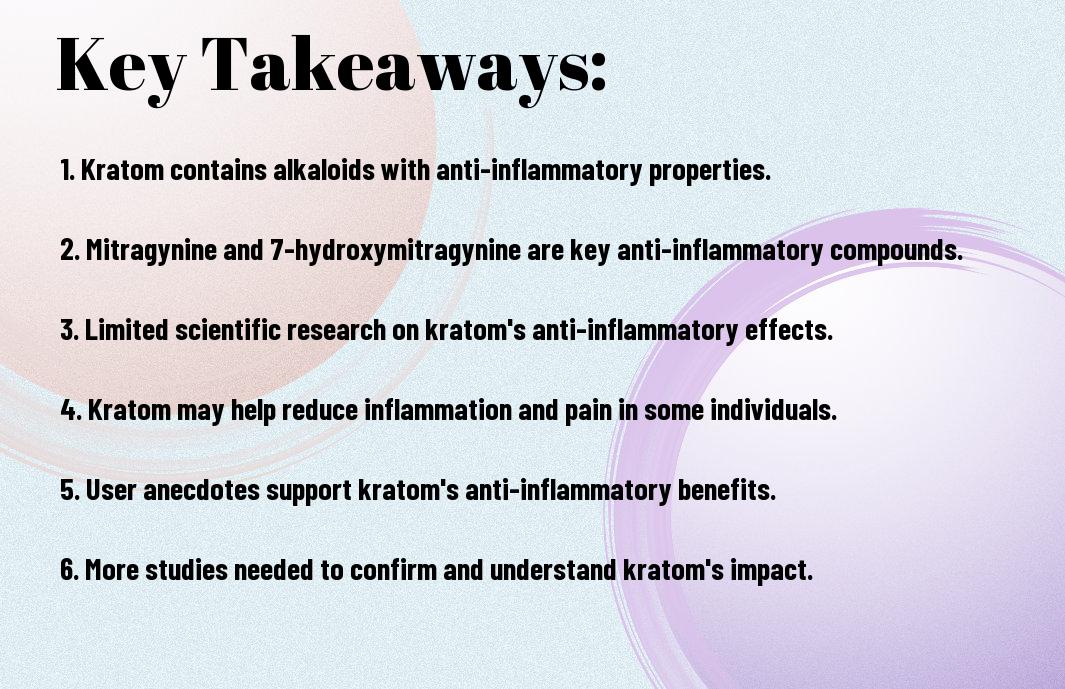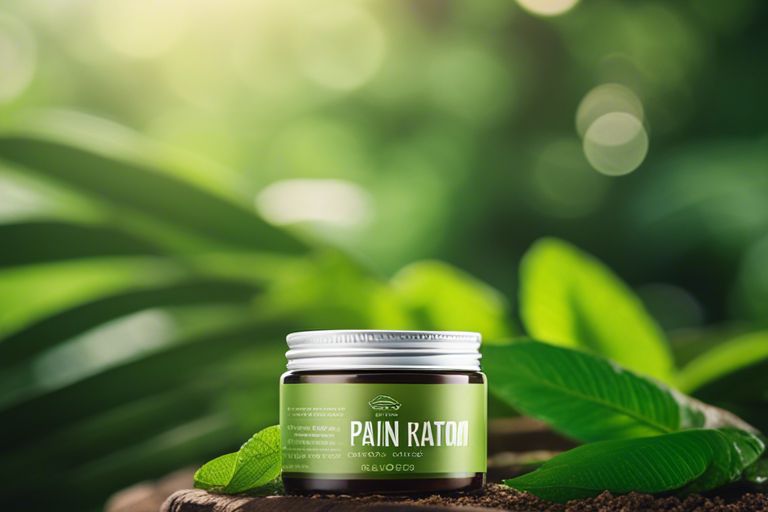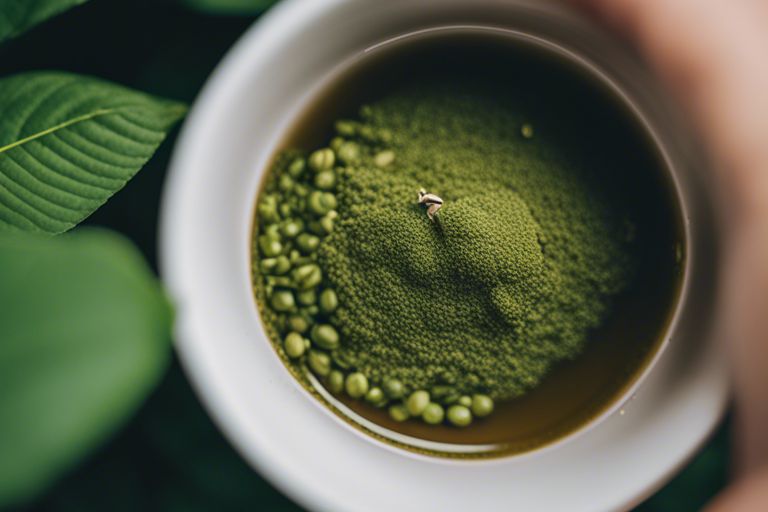With its growing popularity, kratom has sparked curiosity about its anti-inflammatory properties. This article examines into the potential benefits of kratom as an anti-inflammatory agent, exploring its effects and mechanisms. To learn more about the Health Benefits of Kratom, keep reading.
Key Takeaways:
- Kratom may possess anti-inflammatory properties: Emerging studies suggest that kratom may have compounds that exhibit anti-inflammatory effects, possibly due to its alkaloid content.
- Research is ongoing: While initial findings are promising, more research is needed to conclusively determine kratom’s effectiveness as an anti-inflammatory agent and to explore any potential side effects or long-term implications.
- Consult a healthcare professional: Before using kratom for its potential anti-inflammatory benefits, it is vital to consult with a healthcare provider to ensure it is safe and appropriate for your individual health needs and circumstances.

What is Kratom?
While the debate around kratom continues to unfold, it’s important to understand what exactly this botanical substance is. Kratom, scientifically known as Mitragyna speciosa, is a tropical evergreen tree native to Southeast Asia. The leaves of the kratom tree have been traditionally used for their stimulant and analgesic effects by the indigenous populations in countries like Thailand, Indonesia, and Malaysia.
Origin and History
History: Kratom has a long history of traditional use in its native regions, where it was often brewed into teas or chewed to boost energy levels and alleviate pain. In recent years, kratom has gained popularity in Western countries for its potential recreational and medicinal purposes, leading to its classification as a novel psychoactive substance.
Chemical Composition
To: understand kratom’s effects on the body, it’s important to examine its chemical composition. Kratom contains over 40 compounds, with the two primary active alkaloids being mitragynine and 7-hydroxymitragynine. These alkaloids interact with opioid receptors in the brain, producing pain relief and sedative effects similar to opioids.
A: key point to note is that kratom’s mechanisms of action are not fully understood, and its safety profile is a subject of ongoing research. While some individuals report positive effects such as pain relief and improved mood, there are also risks associated with kratom use, including addiction, dependence, and potential adverse effects on the liver and cardiovascular system. It’s crucial to approach kratom use with caution and consult healthcare professionals for guidance.
Inflammation and Its Effects
Definition and Causes
For many people, inflammation is often associated with visible symptoms like redness, swelling, and pain, but it is actually a crucial part of the body’s immune response to injury and infection. Inflammation can be triggered by various factors such as pathogens, damaged cells, or irritants. Chronic inflammation, on the other hand, can be harmful and may lead to various health issues.
Consequences on Health
One of the most concerning aspects of inflammation is its potential long-term effects on health. Chronic inflammation has been linked to a higher risk of developing conditions such as heart disease, cancer, and autoimmune disorders. With modern lifestyles often contributing to prolonged inflammation, it is imperative to address the underlying causes and find ways to alleviate the body’s inflammatory response.

Kratom’s Potential as an Anti-Inflammatory
All around the world, people have turned to kratom for its potential as an anti-inflammatory agent. While more research is needed to fully understand its effects, there are several key factors that contribute to kratom’s reputation as an anti-inflammatory botanical.
Alkaloids and Their Roles
Roles – One of the primary reasons kratom is believed to have anti-inflammatory properties is due to its alkaloid content. Alkaloids such as mitragynine and 7-hydroxymitragynine are thought to interact with opioid receptors in the brain, producing analgesic and anti-inflammatory effects. These alkaloids may help alleviate pain and reduce inflammation, making kratom a potentially valuable natural remedy.
Research Findings and Studies
Potential – Recent research on kratom’s anti-inflammatory properties has shown promising results. Studies have demonstrated that kratom extracts have the potential to reduce inflammation and inflammatory markers in the body. By targeting pathways involved in inflammation, kratom may offer a natural alternative to traditional anti-inflammatory medications.
Anti-Inflammatory – While the research on kratom as an anti-inflammatory is still evolving, many users have reported positive outcomes when using kratom to manage inflammation. However, it’s important to note that the long-term effects and safety of using kratom for inflammation are still being studied. As with any natural remedy, it’s crucial to consult with a healthcare provider before incorporating kratom into your anti-inflammatory regimen.
The Science Behind Kratom’s Anti-Inflammatory Properties
Interaction with Receptors
The science behind kratom’s anti-inflammatory properties lies in its interaction with various receptors in the body. Kratom contains alkaloids that bind to opioid receptors, particularly the mu-opioid receptors. Activation of these receptors initiates a cascade of events that leads to the modulation of pain and inflammation responses in the body. Additionally, kratom also interacts with serotonin and dopamine receptors, which play a role in mood regulation and pain perception.
Impact on Immune System
One of the key ways kratom exerts its anti-inflammatory effects is by modulating the immune system’s response. Kratom has been found to inhibit the production of pro-inflammatory cytokines, molecules that promote inflammation in the body. By reducing the levels of these cytokines, kratom helps to dampen the inflammatory response and alleviate symptoms associated with conditions like arthritis and inflammatory bowel disease.
For instance, studies have shown that kratom’s active compounds can inhibit the production of tumor necrosis factor-alpha (TNF-α), a key cytokine involved in the inflammatory processes of autoimmune disorders. By targeting this specific cytokine, kratom demonstrates its potential as a natural anti-inflammatory agent with promising therapeutic implications.
Real-Life Examples and User Experiences
Anecdotal Evidence
Examples of individuals using kratom for its potential anti-inflammatory properties have been reported anecdotally. Many users claim that kratom has helped alleviate pain and reduce inflammation in various conditions. For instance, some people with arthritis have shared their experiences of finding relief from joint pain after incorporating kratom into their wellness routine.
Online Reviews and Testimonials
User testimonials on online forums and review websites also provide insights into the potential anti-inflammatory effects of kratom. Users often highlight the fast-acting and potent pain-relieving properties of kratom, suggesting that it may indeed have anti-inflammatory benefits. Additionally, some users report using kratom as a natural alternative to traditional anti-inflammatory medications with positive results.
Plus, some users recommend specific kratom strains known for their anti-inflammatory properties, such as Maeng Da or Bali kratom. These strains are said to be particularly effective in managing pain and inflammation, according to user reviews and experiences.
Potential Risks and Side Effects
After considering the potential anti-inflammatory properties of kratom, it is crucial to also understand the risks and side effects associated with its use. While many people use kratom for its perceived benefits, it is important to be aware of the possible negative consequences.
Interactions with Medications
Side effects of kratom can include interactions with medications. It’s important to note that kratom can interact with certain medications, such as antidepressants, mood stabilizers, and drugs used to treat anxiety. These interactions can lead to adverse effects and should be carefully monitored by a healthcare professional.
Possible Adverse Reactions
For those considering using kratom for its potential anti-inflammatory effects, it is important to be aware of the possible adverse reactions. Some individuals may experience nausea, constipation, dizziness, or even dependence or addiction with prolonged use of kratom. It is crucial to use kratom responsibly and be mindful of any adverse reactions that may occur.
Medications that are crucial to an individual’s health and well-being may be impacted by the use of kratom. It is important to consult with a healthcare provider before using kratom, especially if you are taking prescription medications or have underlying health conditions.
Summing up
On the whole, the evidence suggests that kratom may indeed have potential anti-inflammatory properties. While more research is needed to fully understand the extent of its effectiveness and the mechanisms behind its anti-inflammatory effects, the existing studies are promising. Kratom’s use in traditional medicine for pain relief and anti-inflammatory purposes further supports the idea that it could be a valuable natural remedy for managing inflammation.
Can Kratom be Used as an Anti-Inflammatory?
Kratom has been traditionally used for its pain-relieving properties, and some studies suggest that it may also have anti-inflammatory effects. While more research is needed, the potential for kratom to be used as an anti-inflammatory is one of the many kratom uses and benefits being explored.
Can Kratom Capsules be Used as a Form of Anti-Inflammatory?
Kratom capsules have been used as a form of anti-inflammatory by some individuals. While research on the topic is limited, many people believe that kratom has anti-inflammatory properties. If you’re curious, you can learn about kratom capsules and their potential benefits for inflammation from reliable sources.
Can Kratom Help with Inflammation?
Yes, the benefits of white rabbit kratom may include its potential to help with inflammation. Some studies suggest that certain compounds found in kratom leaves may have anti-inflammatory properties that could provide relief for conditions associated with inflammation. Further research is needed to fully understand its effectiveness.
FAQ
Q: Is Kratom an anti-inflammatory?
A: Yes, Kratom has anti-inflammatory properties. It can help reduce inflammation in the body, which may alleviate symptoms of various conditions.
Q: How does Kratom work as an anti-inflammatory?
A: Kratom contains alkaloids that interact with opioid receptors in the brain, leading to pain relief and anti-inflammatory effects.
Q: What are the potential benefits of using Kratom as an anti-inflammatory?
A: Some potential benefits of using Kratom as an anti-inflammatory include pain relief, reduced inflammation, and improved overall well-being.
Q: Are there any risks or side effects associated with using Kratom for its anti-inflammatory properties?
A: While Kratom may have anti-inflammatory effects, it is important to note that it can also have side effects such as nausea, constipation, and dependence if used in high doses or for a prolonged period.
Q: How should Kratom be used if one wants to benefit from its anti-inflammatory properties?
A: It is recommended to use Kratom in moderation and follow dosage guidelines to minimize the risk of adverse effects. Consulting with a healthcare provider before using Kratom is also advisable, especially if you have underlying health conditions.








